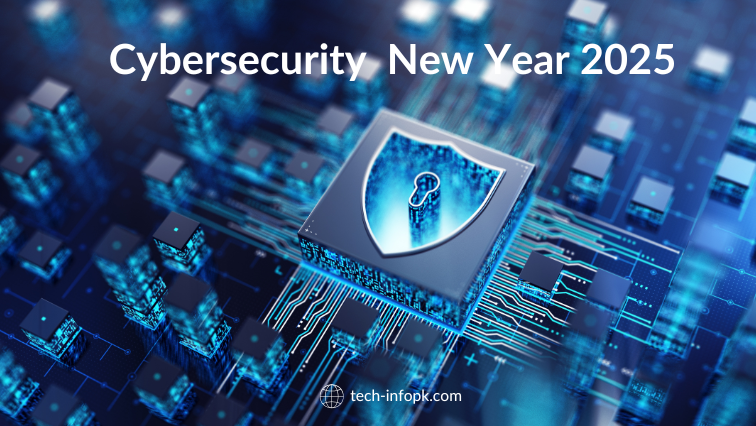The start of a new year offers a unique opportunity for startups to reinforce their commitment to cybersecurity. In today’s rapidly evolving digital landscape, cyber threats are escalating in both sophistication and frequency. To ensure the safety of company assets and data, startups must adopt proactive measures. The following resolutions outline crucial steps that can fortify a company’s digital defenses.

Table of Contents
ToggleSecurely Store Company Passwords
A significant number of cyberattacks stem from poor password practices, such as weak passwords or repeated use of the same credentials across platforms. Hackers exploit such vulnerabilities through a tactic called credential stuffing, where they use compromised credentials from one account to access others.
Startups should prioritize adopting password management tools. These tools are designed to securely store company passwords while assisting employees in creating complex, unique passwords for every account. Password managers eliminate the stress of remembering numerous credentials and significantly reduce the risk of breaches caused by reused passwords.
The evolution of passwordless technologies, such as passkeys resistant to phishing attacks, is also worth exploring. Transitioning to such systems can help businesses achieve higher security standards and protect sensitive accounts against unauthorized access.
Implement Multi-Factor Authentication (MFA)
Passwords alone no longer suffice to safeguard critical accounts. In 2024, cybercriminals leveraged stolen credentials to compromise at least 1 billion personal records, exposing businesses to immense risks. Multi-factor authentication (MFA) has emerged as a robust layer of protection.
MFA requires users to verify their identity using a secondary method, such as a one-time code or biometric input, in addition to a password. This dual-layer authentication system significantly reduces the likelihood of unauthorized account access. For example, leading cloud computing company Snowflake could have avoided data theft involving corporate giants such as AT&T by enforcing strict MFA protocols.
Security experts recommend authenticator apps for generating secure login codes, as SMS-based codes can sometimes be intercepted. Ensuring all employees adopt MFA for both corporate and personal accounts is a critical step in fortifying cybersecurity frameworks.
Regularly Update Software
Ensuring that software is regularly updated is an essential practice for startups. With their limited resources and smaller security frameworks compared to larger corporations, startups are frequently perceived as vulnerable targets by cybercriminals who exploit outdated systems. These criminals often capitalize on unpatched vulnerabilities, leading to data breaches, ransomware attacks, and other costly cyber incidents. By keeping software up to date, startups can significantly reduce the risk of such threats, ensuring that they remain protected against known vulnerabilities and exploits. Many of 2024 most damaging breaches occurred due to unpatched vulnerabilities in third-party software. Hackers specifically target legacy enterprise systems and file-transfer tools, as they often store sensitive company data and remain susceptible to attacks.
Startups must establish protocols for promptly installing updates and applying security patches. Automated update systems can streamline this process, ensuring all software is fortified against known vulnerabilities. Addressing unpatched software reduces the risk of exploitation through zero-day vulnerabilities and improves overall system resilience.
Backup Company Data
Ransomware attacks reached unprecedented levels in 2024, with businesses paying enormous sums to regain access to their data or prevent its public release. Maintaining a comprehensive data backup strategy is an indispensable line of defense against ransomware and other data-theft attacks.
Startups should implement encrypted, offsite backups to safeguard critical data from both cyberattacks and system failures. Regularly scheduled backups ensure the organization can recover from disruptions with minimal data loss. It’s equally important to secure backups against potential hacking attempts, as cybercriminals often target backup systems to neutralize recovery options.
Vigilance Against Fraudulent Calls
While phishing emails remain a prominent attack vector, hackers are increasingly leveraging social engineering through fraudulent phone calls. High-profile breaches, such as MGM Resorts’ $100 million incident in 2023, have demonstrated the devastating impact of this tactic.
Employees should be trained to remain skeptical of unexpected calls, even from seemingly legitimate contacts. Never share sensitive information over the phone unless the caller’s identity is verified through an independent communication channel. Establishing strict verification protocols for phone-based interactions can minimize the risk of such attacks.
Foster a Culture of Transparency
No cybersecurity strategy guarantees immunity from attacks. In the unfortunate event of a breach, transparency can significantly influence recovery outcomes.
Being upfront about incidents allows customers and partners to take precautionary measures, minimizing potential fallout. Additionally, sharing detailed information about the attack with the broader community can help others strengthen their defenses and prevent similar incidents. A transparent approach builds trust and demonstrates accountability, essential for maintaining long-term relationships with stakeholders.

Final Thoughts
In today’s digital era, cybersecurity has evolved beyond being merely an optional consideration; it is now a critical requirement for any business aiming for long-term success. Startups, in particular, must prioritize robust cybersecurity measures, as their ability to safeguard sensitive data not only protects their operations but also helps maintain the trust of their clients, partners, and investors. Proactively addressing cybersecurity challenges ensures that startups can focus on growth and innovation without being derailed by preventable security breaches. By securely managing passwords, implementing multi-factor authentication, keeping software updated, backing up data, being cautious of social engineering tactics, and fostering transparency, startups can build a strong foundation for their digital security.
These New Year’s resolutions are not merely short-term goals but ongoing commitments that can shield your company from escalating cyber threats. As the cybersecurity landscape continues to evolve, staying vigilant and proactive will ensure your startup thrives in an increasingly connected world. Embrace these strategies to safeguard your startup’s future while fostering trust with customers and partners.
Conclusion
In the ever-evolving landscape of digital security, embracing robust cybersecurity practices is not just a resolution for startups—it’s a necessity. Startups must prioritize a multi-faceted approach to protect their data, assets, and customer trust. From securely storing company passwords using advanced password management tools to implementing multi-factor authentication for stronger access control, these measures provide critical barriers against unauthorized access. Regularly updating software to address vulnerabilities, coupled with encrypted data backups, ensures resilience against the rising tide of ransomware attacks.
Equally important is vigilance against emerging social engineering tactics like fraudulent phone calls, which have proven to be devastating for major organizations. Training employees to verify communications and fostering a culture of cybersecurity awareness is key to mitigating these risks. Transparency during cybersecurity incidents not only minimizes fallout but also strengthens trust with stakeholders, demonstrating your startup’s commitment to accountability and security.
By adopting these essential resolutions, startups can create a resilient cybersecurity framework that safeguards their operations in 2024 and beyond. These strategies enable startups to stay ahead of evolving cyber threats, fostering growth in a secure digital environment. Let this New Year be a turning point for your startup to embrace cybersecurity best practices, ensuring both protection and success in an increasingly interconnected world.





